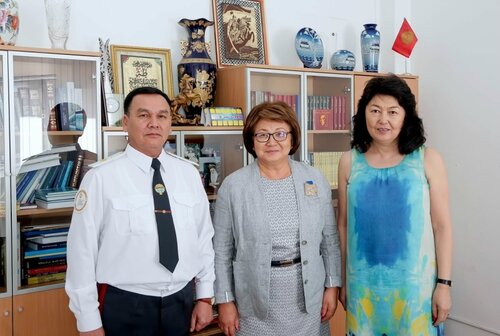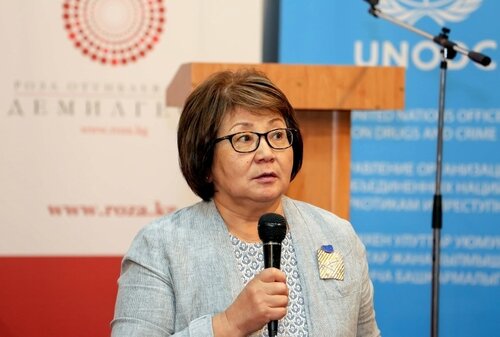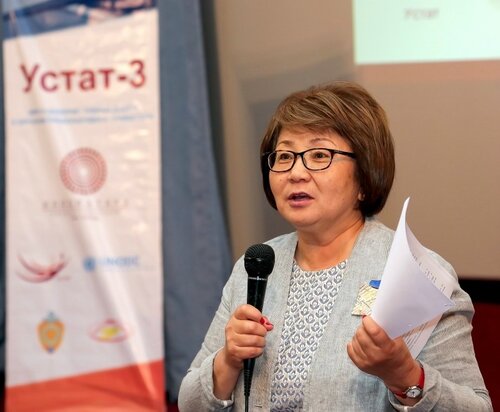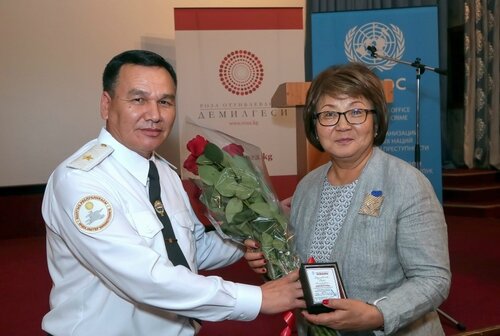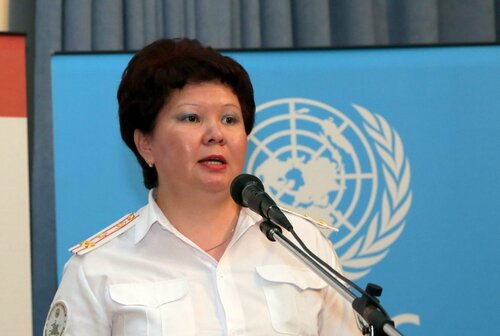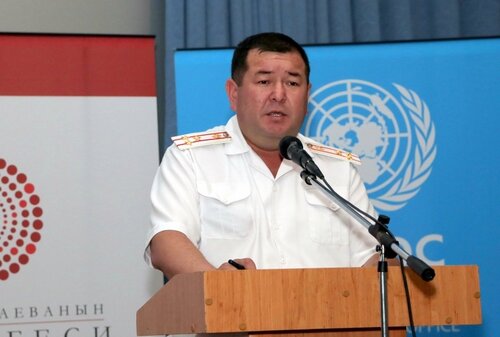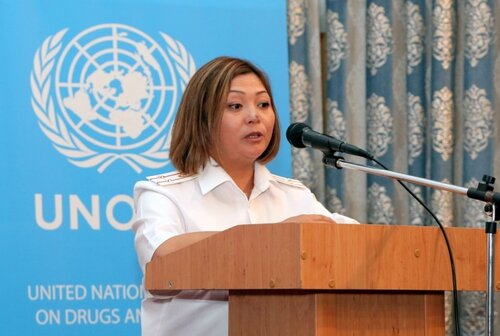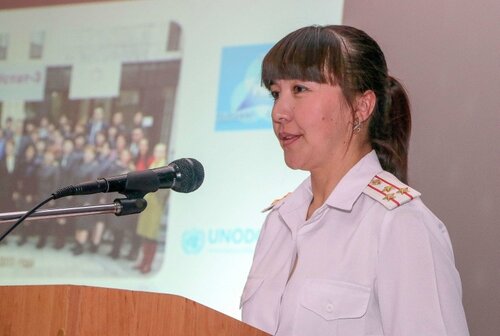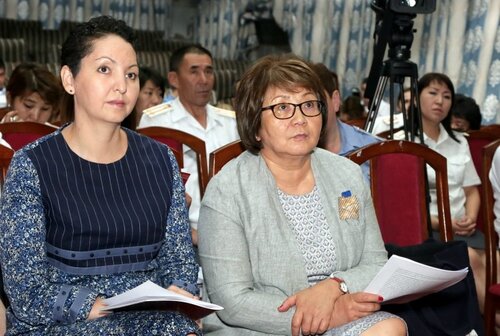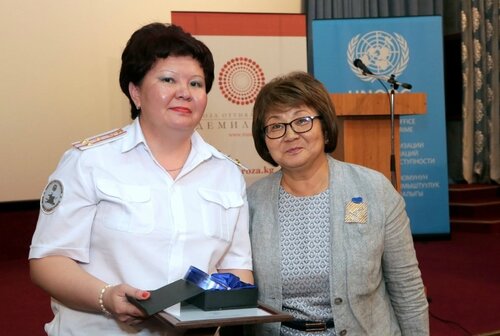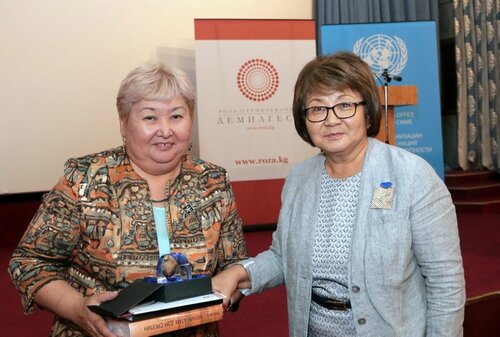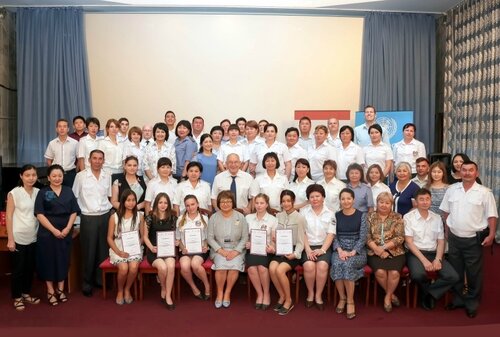Closing Ceremony of the Mentoring Project «Ustat-3» In Photos.
June 17, 2016, 06:00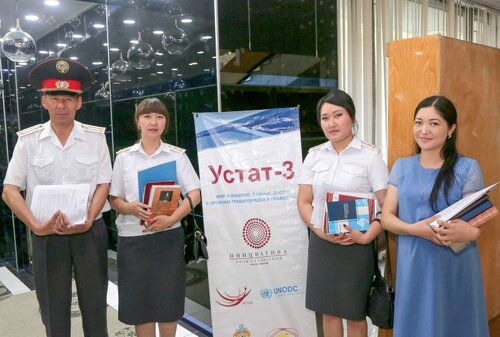
The IPF “Roza Otunbayeva Initiative,” in cooperation with the MID KR and the Association of Female Police Officers of the Kyrgyz Republic, and with the support of the United Nations Office on Drugs and Crime (UNODC), has completed the mentoring project “Ustat-3.” Participants in the project included: ex-President of the Kyrgyz Republic R.I. Otunbayeva, Minister of Internal Affairs of the Kyrgyz Republic K.A. Djunshaliev, UNODC International Manager B.B. Tkachenko, representatives from international and non-governmental organizations, mentors from every region of the country, mentees from the project, and other guests.
The goal of the “Ustat-3” project is the promotion of confidence in the police and the prestige of positions in the police force, which is to be accomplished through career guidance for graduating middle school students. The project is based on the relationships between mentors and mentees, and is aimed at improving the gender and ethnic balance of the police force.
In her speech, ex-President Roza Isakovna Otunbayeva highlighted examples of the effectiveness of the project’s systematic mentoring sessions in the Ministry of Internal Affairs’ system. This sort of interaction helps give our youth a clear picture of the police, while meaningfully increasing mutual understanding and civil society’s trust in the law-enforcement community.
R.I. Otunbayeva appealed to the MID’s leadership to take concrete steps to increase representation of women and ethnic minorities in the police force, and to create conditions that allow women to be promoted to equal positions with men. Both men and women are employees that are expected to fulfill responsibilities dictated by the EFA Law, their orders, and job descriptions. She called on the MID Academy to conduct regular career counseling, remove the restrictions limiting female hirings to 20% of the total force, and to eliminate any remaining discriminatory practices.
In his speech, Minister of Internal Affairs K.A. Djunushaliev noted that the force can only accomplish its goals by improving civil safety and order, as well as by gaining the trust of citizens. The MID’s gender policy is meant to increase the number of women and ethnic minorities in the force, and this trend will continue to be developed and improved upon. The Ministry itself will commit all of its strength and attention to this issue.
UNODC International Manager Vera Valerevna Tkachenko highlighted the role the donor community has played over many years in providing technical, financial, and expert help to the MID, and expressed her interest in seeing the results of this support in the DIA’s system. It was suggested to the Ministry, that concrete steps need to be taken to increase representation of females and ethnic minorities in the police force.
Project mentors and mentees also spoke to the audience, sharing their impressions of working together.
Independent Expert Gulsara Midinovna Alieva gave a presentation about her experiences working on the gender representation issue in the MID as part of the “Peace and Trust – Equal Access to Law Enforcement Agencies, UNODC” project.
“Ustat-3” Project Coordinator Asel Yusoopova gave a presentation entitled “Results of the “Ustat-3” Project: Challenges and Accomplishments.” 34 police employees/mentors, of whom the majority are women, worked with 121 male and female mentees who want to attend the MID Academy of the Kyrgyz Republic.
At the end of the event, an official awards ceremony was held to recognize the best students of the project, who received diplomas and memorabilia. Every mentee from the “Ustat-3” project was given a certificate recognizing their participation in the project.
It is gratifying to hear that the “Ustat-3” project became the impetus for a full-scale reassessment of the role of women in the police force. A large number of female AVD employees, including “Ustat-3” project mentors, were awarded medals and certificates by the MID.
For Reference:
The “Ustat-3” mentoring project was implemented by the Foundation in 2013, and is aimed at encouraging young, able, and willing women to actively participate in the cooperative process between female mentors (Ustat) and young, female mentee-specialists (Shakirt). During this period, two other projects have been successfully completed: “Ustat-1” (for young specialists working with high-ranking female mentors from the General Procurator’s Office, Supreme Court, National Bank, and others) and “Ustat-2” (for older high school students from the Bishkek suburbs, who received mentoring from experienced education and science professionals).

